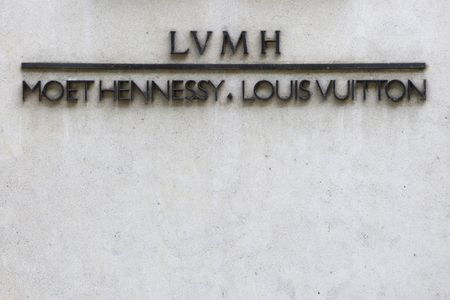By Stephen Culp
NEW YORK (Reuters) -Wall Street stocks were mixed on Tuesday and Treasury yields dipped as investors weighed upbeat economic sentiment from the International Monetary Fund and Federal Reserve Chair Jerome Powell against revived U.S.-China trade tensions.
The S&P 500 and the Dow rebounded after all three major U.S. stock indexes opened sharply lower, while crude prices fell and safe-haven gold prices jumped past the $4,100 mark for the first time.
The tech-laden Nasdaq remained modestly lower.
In a speech on Tuesday, Powell said the overall U.S. economy “may be on a somewhat firmer trajectory than expected,” while also cautioning that “there is no risk-free path for policy as we navigate the tension between our employment and inflation goals.”
That echoed an IMF report which raised its global growth outlook as tariff shocks and financial conditions have proven more benign than expected. But the IMF warned that the trade war between the world’s two largest economies could significantly slow output.
“What we have here is a market that has one ear constantly listening to the trade war rhetoric and then we have the other ear, which is in tune to the fundamentals of the stock market,” said Peter Cardillo, chief market economist at Spartan Capital Securities in New York.
The United States and China began charging tit-for-tat port fees on Tuesday.
Bilateral trade tensions, which have rattled world markets this year, flared up late last week after China tightened controls of its rare earth exports. U.S. President Donald Trump retaliated by threatening to hike tariffs on Chinese imports into the triple digits.
Upbeat quarterly results from high-profile financial firms including JPMorgan Chase, Goldman Sachs, Citigroup and Wells Fargo kicked off the third-quarter earnings season.
“If the banks are a guide, it will probably be a good earnings season,” Cardillo added. “That’s another supportive factor because to a certain degree, it validates the recent market highs.”
Analysts estimate, on aggregate, third-quarter year-on-year growth of 9.2% for the S&P 500, up from 8.8% at the beginning of the month, LSEG data showed.
As the U.S. government shutdown rolls on due to a partisan congressional impasse, official economic data remains unavailable. But a National Association of Independent Business report showed small business sentiment deteriorating as inflation worries creep back to the fore.
The Dow Jones Industrial Average rose 392.34 points, or 0.85%, to 46,460.87, the S&P 500 advanced 18.74 points, or 0.28%, to 6,673.46 and the Nasdaq Composite fell 42.25 points, or 0.18%, to 22,652.35.
European stocks closed lower as renewed U.S.-China trade tensions soured investor sentiment and French tire maker Michelin cut its annual forecast, sending its shares to the lowest level in more than two years. Investors eyed developments in France, where the prime minister appeared set to hold off on a key pension overhaul.
MSCI’s gauge of stocks across the globe rose 0.51 points, or 0.05%, to 981.60.
The pan-European STOXX 600 index fell 0.37%, while Europe’s broad FTSEurofirst 300 index fell 7.41 points, or 0.33%.
Emerging market stocks fell 12.50 points, or 0.92%, to 1,340.81. MSCI’s broadest index of Asia-Pacific shares outside Japan closed lower by 1.02%, to 695.44, while Japan’s Nikkei fell 1,241.48 points, or 2.58%, to 46,847.32.
Treasury yields declined but were off earlier lows, following Powell’s speech and IMF’s revised growth outlook.
The benchmark U.S. 10-year note yield fell 2.3 basis points to 4.028%, from 4.051% late on Friday.
The 30-year bond yield fell 0.6 basis points to 4.6282% from 4.634% late on Friday.
The 2-year note yield, which typically moves in step with interest rate expectations, fell 3.9 basis points to 3.483%, from 3.522% late on Friday.
Oil prices dipped on trade war jitters and a report from the International Energy Agency which raised the prospect of increased supplies and dampening demand.
U.S. crude fell 1.33% to settle at $58.70 per barrel, while Brent settled at $62.39 per barrel, down 1.47% on the day.
The dollar eased while the Swiss franc and Japanese yen firmed as safe-haven currencies benefited from heightened trade-driven risk.
The dollar index, which measures the greenback against a basket of currencies including the yen and the euro, fell 0.27% to 99.04, with the euro up 0.32% at $1.1605.
Against the Japanese yen, the dollar weakened 0.32% to 151.78.
In cryptocurrencies, bitcoin fell 2.13% to $113,334.48. Ethereum declined 3.91% to $4,121.82.
Gold broke past $4,100, boosted by rising expectations of Fed rate cuts and safe-haven demand arising from the latest salvo in the Washington-Beijing trade spat.
Spot gold rose 0.88% to $4,146.12 an ounce. U.S. gold futures rose 0.32% to $4,121.80 an ounce.
(Reporting by Stephen Culp; Additional reporting by Amanda Cooper in London; Gregor Stuart Hunter in Singapore; Editing by Timothy Heritage and Richard Chang)











